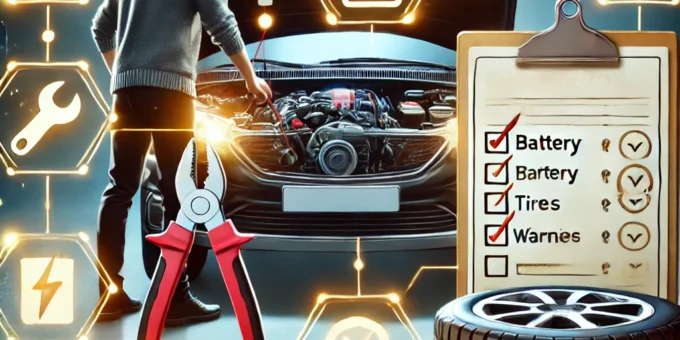
Owning a car means dealing with occasional issues, from minor annoyances to potential safety hazards. Identifying and fixing common car problems can save you time, money, and frustration while keeping your vehicle running smoothly. This guide outlines practical solutions for some of the most frequent car troubles drivers face.
Why Learn to Identify and Fix Common Car Problems?
- Save Money: DIY solutions can significantly reduce repair costs.
- Ensure Safety: Addressing issues promptly prevents accidents.
- Increase Longevity: Proper maintenance extends your car’s life.
How to Spot Common Car Problems
Listen for Unusual Sounds
- Squealing Brakes: Indicates worn brake pads.
- Rattling Under the Hood: Could signal loose components.
- Knocking Engine: May point to issues with the pistons or timing.
Pay Attention to Warning Lights
- Check Engine Light: Ranges from minor issues to serious engine problems.
- Battery Light: Suggests charging or battery health concerns.
- Oil Pressure Light: Indicates low oil levels or a faulty oil pump.
Notice Changes in Performance
- Decreased Fuel Efficiency: Dirty air filters or spark plugs might be the cause.
- Difficulty Starting: Could result from battery or ignition system problems.
- Vibrations While Driving: May stem from misaligned tires or suspension issues.
How to Fix Common Car Problems
1. Dead Battery
Signs: Dim lights, no response when turning the key.
Fix:
- Jump-start the car using jumper cables.
- Replace the battery if it no longer holds a charge.
2. Flat Tire
Signs: Thumping noise, uneven vehicle height.
Fix:
- Use a jack and spare tire to replace the flat one.
- Patch minor punctures with a repair kit.
3. Overheating Engine
Signs: Steam from the hood, rising temperature gauge.
Fix:
- Turn off the AC and pull over immediately.
- Check and refill coolant levels.
- Inspect for radiator or hose leaks.
4. Brake Problems
Signs: Squealing, grinding, or reduced stopping power.
Fix:
- Replace worn brake pads.
- Bleed the brake lines to remove air bubbles.
5. Rough Idling or Stalling
Signs: Engine sputtering or shutting off unexpectedly.
Fix:
- Replace spark plugs and check ignition coils.
- Clean the fuel injectors.
Preventing Common Car Problems
1. Schedule Regular Maintenance
Follow the manufacturer’s guidelines for oil changes, tire rotations, and fluid checks.
2. Inspect Tires and Brakes
Ensure proper inflation and replace tires with worn treads. Test brakes regularly for responsiveness.
3. Monitor Fluids
Check levels for oil, coolant, brake fluid, and transmission fluid. Top up or replace as needed.
4. Replace Filters
Change air and fuel filters periodically to ensure optimal performance.
5. Drive Sensibly
Avoid harsh braking and acceleration, which strain your car’s components.
When to Seek Professional Help
Complex Electrical Issues
Leave wiring and electronic diagnostics to certified mechanics.
Transmission Problems
Unusual noises or difficulty shifting gears often require specialized expertise.
Persistent Engine Trouble
If basic fixes don’t resolve engine issues, consult a professional to avoid further damage.